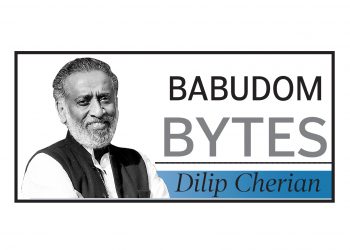India’s top anti-corruption watchdog, the CVC, has just delivered a stinging reality check to the CBI, and it’s not a flattering picture. The agency that loves raiding others for “delays, irregularities and misconduct” seems to have no time for the skeletons in its own cupboard. Sixty pending departmental actions against its own staff, with 22 festering for more than four years, makes one wonder whether the CBI runs on a “do as I say, not as I do” manual?
When the country’s premier investigative agency drags its feet on disciplining its own, it chips away at its credibility. The CVC is blunt: such pendency dents the CBI’s image. Translation: if the cop on the beat looks corrupt, how do you expect anyone else to behave?
And then comes the other kicker—1,500 vacant posts. Nearly 900 of them are in the executive ranks. That’s like trying to run a hospital without doctors but keeping the canteen stocked. How does the CBI plan to investigate high-profile corruption cases when it doesn’t even have the people to chase down files, let alone white-collar criminals?
There’s an old joke that the CBI is a “caged parrot.” But looking at this report, one wonders if the parrot has not just been caged but has also lost its voice. It can still squawk loudly when unleashed politically, but when it comes to cleaning its own nest, the silence is deafening.
For an agency that claims to guard India’s integrity, the first order of business should be simple—set its own house in order. Otherwise, every raid, every press conference, every “we got them” moment will ring just a little hollow.
This is not governance
The latest dust-up between Maharashtra Deputy Chief Minister Ajit Pawar and IPS officer Anjana Krishna is more than about illegal sand mining in Maharashtra. It’s about the perennial tug-of-war between politicians and babus. On paper, both swear by the Constitution. In practice, one sees oneself as the master, the other as the keeper of rules. Sparks are bound to fly.
Krishna stood her ground when Pawar dialed in, reportedly with a threatening tone, after his party worker complained about her action against unauthorized mining. She didn’t budge because—imagine this—the miners couldn’t show valid documents. That’s how the system is supposed to work, but in our political culture, asking for paperwork often invites wrath.
We’ve seen this movie before: Durga Shakti Nagpal in Uttar Pradesh was suspended for taking on the sand mafia; IAS officers in Madhya Pradesh and Karnataka were heckled, insulted, and compared to pets. It’s a script that rarely changes—politicians flex muscle and babus, at least some of them, resist, and we get a ringside view of power games.
What’s more insidious is digging up Krishna’s caste and educational records to discredit her. This is not governance, but plain vendetta politics. When officers are targeted personally for doing their jobs, the message to the entire bureaucracy is clear: step out of line, and we’ll settle scores. That’s why these clashes matter more than they seem.
A fake babu exposes the real rot
Every few years, India throws up a scam that feels less like a crime report and more like the script of a Netflix thriller. The arrest of Saurabh Tripathi, the fake IAS officer who glided around Lucknow in convoys of SUVs, complete with seals, passes, and a personal staff, is one of those stories. It’s both absurd and chilling.
Because let’s be clear: you don’t waltz into high-level meetings, rub shoulders with senior officials, and strike deals on officer postings just by flashing a plastic ID card. You do it because the system is porous, and also because people inside the system are willing to play along. Tripathi’s diary, call records, and financial trail don’t just expose his hustle; they raise uncomfortable questions about the babus and cops who might have been perfectly happy to let a pretender grease the wheels.
And surely that’s the part we can’t ignore. A man with no official authority allegedly became a power broker in transfers and promotions—something ordinary citizens already suspect is a marketplace for influence. His scam worked not because he was a master of disguise, but because too many in the corridors of power were ready to buy what he was selling.
The police can continue to parade seized cars and fake seals, but unless this probe names and shames the officers who enabled him, the story won’t be about one conman. It’ll be about a bureaucracy so compromised that even a fake babu could thrive.
By Dilip Cherian






































